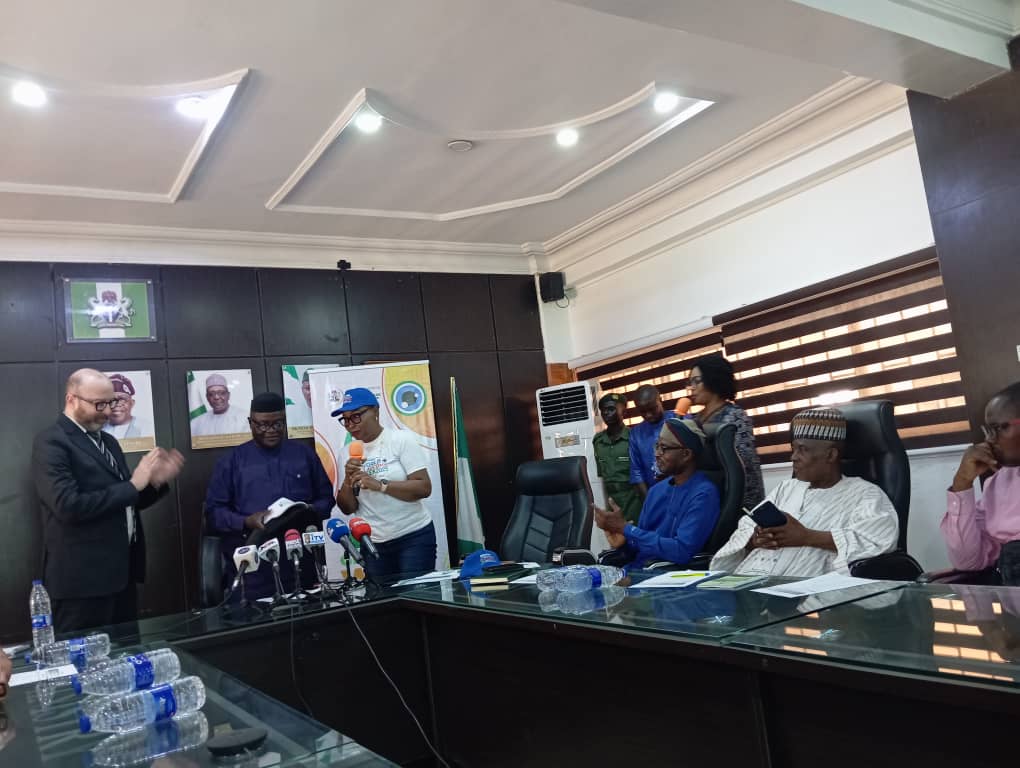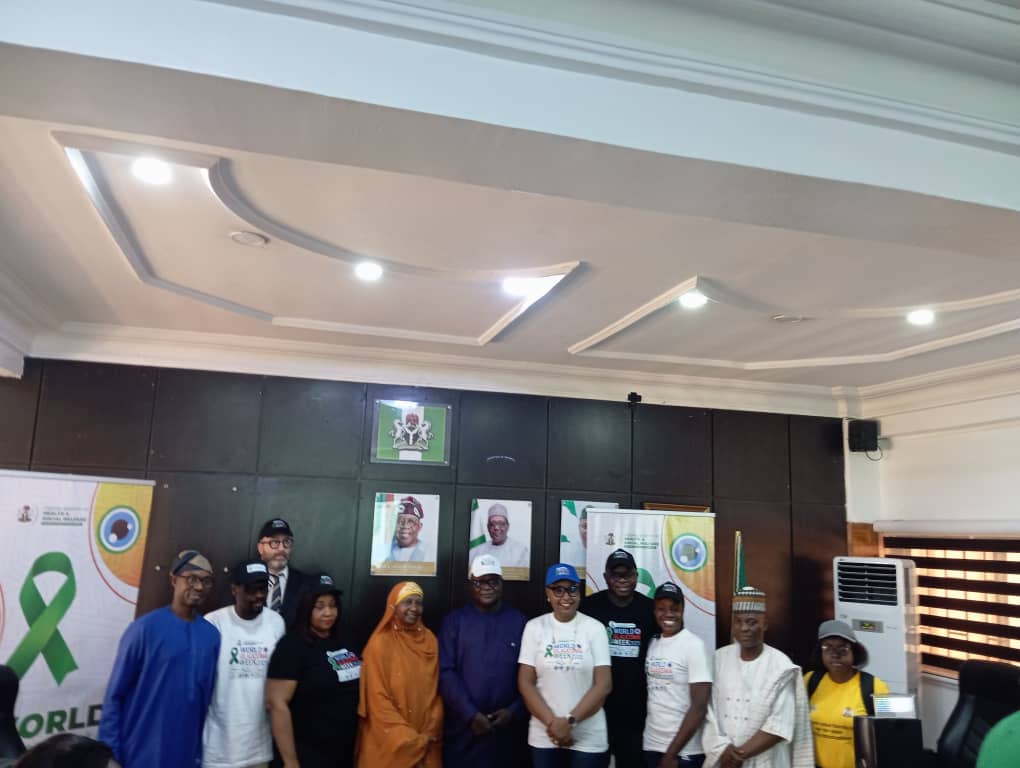The Federal Government has raised concerns over the increasing burden of glaucoma in Nigeria, warning that all Nigerians are at risk due to genetic predisposition and other factors.
Speaking at a press briefing on Monday in Abuja to mark the 2025 World Glaucoma Week (WGW), Minister of State for Health and Social Welfare, Dr. Iziaq Salako, represented by Dr. Akpan Nse, Director of Port Health Services, stressed the importance of early detection and treatment to prevent irreversible blindness.
 “Glaucoma is the second leading cause of blindness worldwide and the leading cause of irreversible blindness in Nigeria. With early detection, it can be managed, but without intervention, it silently steals sight,” Salako said.
“Glaucoma is the second leading cause of blindness worldwide and the leading cause of irreversible blindness in Nigeria. With early detection, it can be managed, but without intervention, it silently steals sight,” Salako said.
According to the Nigerian Blindness and Visual Impairment Survey (2005–2007), glaucoma accounts for 16.7% of blindness cases in the country. Globally, the disease affects over 60.5 million people, with 87% of cases recorded in developing countries. Salako noted that risk factors for glaucoma include age (above 40 years), family history, elevated eye pressure, diabetes, hypertension, refractive errors, and prolonged use of corticosteroids.
Salako noted that risk factors for glaucoma include age (above 40 years), family history, elevated eye pressure, diabetes, hypertension, refractive errors, and prolonged use of corticosteroids.
However, he emphasized that the condition can develop at an earlier age and progress more aggressively in Africans.
To tackle the disease, the Federal Ministry of Health and Social Welfare has launched the National Glaucoma Screening and Treatment Guidelines, which have been distributed across all states and the Federal Capital Territory (FCT).
Additionally, through the JigiBola 2.0 Initiative, the government is providing free vision screening and aims to distribute five million pairs of reading glasses to Nigerians over the next three years.
So far, over 100,000 people have been screened, and 80,000 have received free spectacles, in partnership with organizations such as Livelihood Impact Fund, Restoring Vision USA, and the Clinton Health Access Initiative (CHAI).
Speaking on behalf of the Permanent Secretary, Dr. Kachollom Shangti Daju, Dr. Oteri Okolo, National Coordinator, National Eye Health Programme, urged Nigerians to prioritize regular eye examinations.
“Too many Nigerians realize they have glaucoma only when significant vision loss has already occurred. Early detection is key, and we must encourage routine eye checkups,” Okolo stated.
The Ministry is integrating Primary Eye Care (PEC) into Primary Health Care (PHC) facilities, training over 3,000 PHC workers across 682 health centers in 15 states to improve glaucoma diagnosis and referral systems.
The government also acknowledged the support of Sightsavers, OneSight EssilorLuxottica Foundation, Christoffel Blinden Mission (CBM), pharmaceutical companies, and health researchers, urging them to sustain efforts in improving access to affordable glaucoma medications and innovative detection methods.
“With a united effort, we can save millions of Nigerians from avoidable blindness and improve quality of life, which is key to national development,” Salako concluded.
The public is encouraged to visit health centers for free screenings and report any symptoms of blurred vision, eye pain, or loss of peripheral sight.
Earlier, Dr. Oteri Okolo, National Coordinator, National Eye Health Programme emphasized the urgent need to combat glaucoma-related blindness in Nigeria.
“This irreversible blindness, where not detected early and where not treated, has truly been a critical issue here for the medical industry of health,” she stated.
She noted that the Ministry of Health has taken proactive steps by gathering key stakeholders to raise awareness and develop policies aimed at preventing blindness from glaucoma.
She urged all attendees to become advocates for glaucoma awareness, envisioning a future where no Nigerian loses their sight to this preventable disease.
Beyond prevention, Dr. Okolo highlighted the importance of supporting individuals who are already blind due to glaucoma.
“We want to also advocate for interventions and programs that ensure they are able to contribute meaningfully towards their own well-being and to national development,” she said.
She stressed that rehabilitation and social integration of blind individuals should be a core aspect of glaucoma management in Nigeria. The event, therefore, not only aimed to educate the public but also sought to create sustainable programs that improve the quality of life for those affected.
Concluding her remarks, Dr. Okolo issued a call to action, urging everyone to prioritize their eye health.
“Ensure that nobody beside you or no one that you know becomes blind from glaucoma,” she said.


